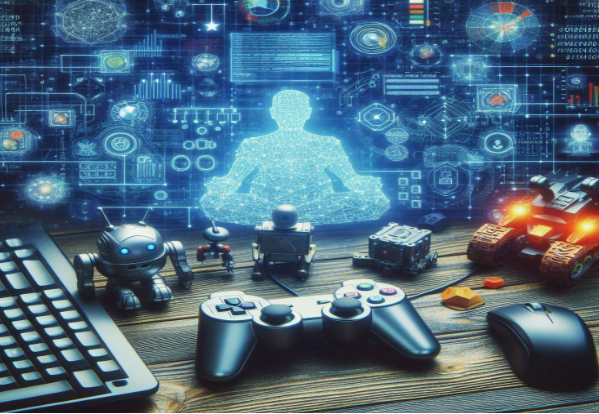AI in Esports: Leveraging Machine Learning for Competitive Advantage – Golf News

The convergence of artificial intelligence (AI) and sports is changing competitive sports and betting, providing players, teams, and bettors with platforms like betwinner live score with unprecedented tools to gain a competitive edge. Machine learning, a subset of AI, is particularly impactful in this context, enabling real-time analysis of gameplay, strategy optimization for both players and bettors, and performance improvements across the board. This article discusses how AI, through machine learning, is reshaping the esports landscape while improving the betting experience on platforms like BetWinner Live Score, ultimately driving a new level of competitive advantage and engagement for participants and spectators alike.
Real-Time Analysis and Decision Making
In the fast-paced world of sports, split second decisions can make the difference between victory and defeat. AI systems equipped with machine learning algorithms analyze large amounts of in-game data in real time, providing insights that help players and teams make informed decisions quickly. For example, in games like Dota 2 or League of Legends, AI can analyze players' movements, item choices, and in-game strategies, offering suggestions about the best plays or warning about potential threats.
These AI-driven analytics tools continue to learn and adapt, becoming more accurate and useful over time. This dynamic learning capability ensures that players receive the most relevant and up-to-date information, tailored to their unique play styles and evolving metagame.
Developing a Strategy
Machine learning models can analyze past games to identify patterns and strategies that lead to success. By analyzing thousands of matches, the AI can see the subtle nuances that separate winning and losing strategies. This analysis goes beyond simple records of losses, to small analyzes of gameplay, such as timing, standings, and resource management.
Teams can use this information to improve their strategies, both in terms of overall game plans and specific in-game tactics. The AI can suggest adjustments to improve performance, such as changing team composition, prioritizing certain objectives, or adjusting play styles to counter the opponent's strengths and exploit their weaknesses.

Performance Development and Training
AI-powered training tools are revolutionizing the way esports athletes prepare for competition. These tools provide personalized feedback based on detailed performance analysis, highlighting areas for improvement and suggesting targeted practices. For example, an AI coach may identify a player's tendency to make positioning errors in critical moments and recommend specific exercises to correct this weakness.
In addition, machine learning algorithms can create realistic simulations of opponents, allowing players to practice against virtual representations of their future opponents. These AI-generated opponents can mimic the styles and strategies of real players, providing valuable practice that closely matches the challenges players will face in real matches.
Predictive statistics
The predictive power of AI is also making a huge impact on esports. By analyzing historical data and current trends, machine learning models can predict match results, player performance, and even the future popularity of certain games or strategies. These predictions can inform various aspects of the sport, from team management and player evaluation to fan engagement and betting markets.
For teams and players, predictive analytics provide a strategic advantage, helping them to anticipate their opponents' moves and adjust their strategies accordingly. For fans and commentators, these predictions add an extra layer of excitement and insight, enhancing the overall viewing experience.
The conclusion
AI and machine learning are transforming sports, giving players, teams, and fans new ways to engage and excel in competitive sports. From real-time analysis and strategy development to performance optimization and predictive analytics, AI-driven tools provide the competitive edge needed to succeed in the rapidly evolving world of esports. As technology continues to advance, the integration of AI into esports will only deepen, continuing to change the landscape and raise the level of competition. For more information, see this article on Wikipedia.
FAQ: AI in Esports
- How is AI used in real-time decision making during esports games?
AI systems analyze vast amounts of in-game data in real time, providing insights that help players and teams make quick, informed decisions. These systems can suggest high-quality plays, warn of potential threats, and adapt to changing game conditions, ensuring players have the most relevant and timely information at their disposal.
- Can AI help improve individual player performance in esports?
Yes, AI-powered training tools provide personalized feedback based on detailed performance analysis. They can highlight areas for improvement and suggest targeted practices. Additionally, AI can mimic opponents' playing styles, allowing players to practice against virtual representations of their upcoming opponents, resulting in more efficient and focused training sessions.
- How does predictive analytics improve the competitive edge in esports?
Machine learning models can predict match results, player performance, and future trends by analyzing historical and current data. These predictions help teams anticipate opponents' strategies and adjust their game plans accordingly. For fans and commentators, predictive analytics provide in-depth information about matches, improving engagement and the overall viewing experience.
Source link



